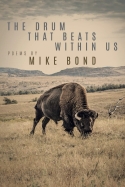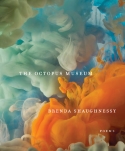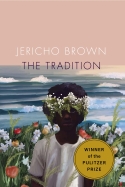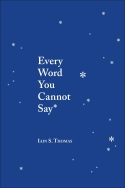April is National Poetry Month, which means it’s the perfect time to pay tribute to some of our favorite collections. Whether the words are nostalgic, haunting or overflowing with happiness, we love powerful language. From classics to newfound treasures, we hope you take some moments to reflect on some beautiful verses. Enter our giveaway at the bottom to win some tremendous recent releases.
![]()
“When Death Comes” by Mary Oliver
JeriAnn M. Geller: The loss of beloved poet Mary Oliver propelled me to go back and rediscover her work. I’ve been attempting to capture certain poems and verses in calligraphy, just to have the excuse to render her imagery into something concrete. One of my favorite poems is her meditation on death. Unlike other poets I admire who have written on the subject, such as Linda Pastan and Emily Dickinson, Oliver sees the positive with the negative; “When Death Comes” is energizing and life-affirming. It makes me want to run out and grab life with both hands because, “I don’t want to end up simply having visited this world.”
“Gabriel: A Poem” by Edward Hirsch
Ann Lineberger: Raw, intense, and above all heartfelt, “Gabriel: A Poem” is a stunning elegy to the poet’s difficult son who died at age twenty-two after ingesting a club drug.
Arranged in three-line stanzas and unrestricted by punctuation, there is a rhythm to the book-length poem that captures the intensity of a father’s lifelong concern of a beloved, deeply troubled son, the boy himself in all of his frenetic energy and the unimaginable grief of his death that Hirsch likens to carrying a bag of cement up a mountain at night.
Perfectly crafted and beautifully written, it was impossible for me to put down the poem until I reached the end.
“Aunt Jennifer’s Tigers” by Adrienne Rich
Rebecca Proulx: Rich manipulates language with beautiful imagery and clever wordplay to illustrate the struggles of women and inspire change. This poem reminds me of the strides women have made in their personal and professional lives, but also how much work still needs to be done. This poem resonates with me because it conveys the conflicted feelings of frustration in what you feel limited to in life, contrasting with the pride of what you can accomplish.
“Jabberwocky” by Lewis Carroll
Jeff Daugherty: I don’t really have a deep analysis of this poem—it’s just a lot of fun. Poetry should be fun and whimsical sometimes. This is an early example of a “nonsense poem” and without nonsense poems, we wouldn’t have Dr. Seuss. The jabberwock, the fictional, fantastical creature described in this poem, is depicted as kind of frightening, but in a goofy way. This poem encourages us to see frightening things in a goofy light. Also, this poem coined the word “chortle,” and that’s a great word.
“Dreams” by Langston Hughes
Y.M. Nelson: Many of Langston Hughes’ poems resonate with me on a gut level. They don’t hit you in the face; instead, they gently remind you “Hey, I am here. We are here. And this is what we’re all thinking and feeling.” Hughes uses simple imagery to convey metaphor and deep meaning that causes you to sit and think to truly process what you’re seeing. “Dreams” speaks to the writer in me. So much of my inspiration has come from dreams, and without my writing, I am not me. I exist, but I can’t live without my writing, inspired by dreams.
“I think I should have loved you presently” by Edna St. Vincent Millay
Deb Zipf: I just love the sound of this poem by St. Vincent Millay. It speaks to me in a very personal way.
“The Foxhole Manifesto” by Jeffrey McDaniel
Meagan Foy: “The Foxhole Manifesto” is a deeply lyrical and startling portrayal of a desperate man’s confrontation with God while fearing for his life. Not only do I love this poem for the possibilities it conjures, but because it confronts a fear many face: God isn’t real.
“The Pasture” by Robert Frost
Jim Alkon: A very short verse describing a farmer going out to tend to some work and inviting an apparent dear friend to join him. This poem brings out themes of spring and rebirth. I loved it for its imagery and simplicity when I first read it as a young child.
“The Song of Wandering Aengus” by William Butler Yeats
Neil Nyren: When my wife and I got married in the fall of 1970, we each chose a poem to read aloud during the ceremony. This was mine. It is intensely romantic, lit by shimmering imagery, and captured perfectly the feelings filling my mind that afternoon. Read it and you’ll see what I mean. Go ahead. I’ll wait.
“The Coin” by Sara Teasdale
Anne Eliot Feldman: I love this poem for its quaint language, its timeless message and its poignancy. It speaks of pain and the deliberate urgency to hold onto what has beauty and meaning in life. So many things I love about Sara Teasdale’s work and her life. She won the first Pulitzer Prize for poetry in 1918, she was close friends and competitors with Edna St Vincent Millay and Sara is often compared with Emily Dickenson for the difficult lives they each led.
“Waterfall” by Seamus Heaney
Casey Barrett: “…water goes over / Like villains dropped screaming to justice.” That line kills me every time.
“Birches” by Robert Frost
Krista Beggan: “I’d like to get away from earth awhile / And then come back to it and begin over.” Escape? Yes, please! There’s so much in this poem but, at its heart, I think it’s really about one man’s beautiful examination of how to balance living in reality with the dream.
“Fern Hill” by Dylan Thomas
Claudia Keenan: I love this poem because of its gorgeous evocation of the happiness of childhood and the child’s command of his / her world. That long ago place is green and golden, comforting and wondrous. Yet the child is wistful, aware that time is fleeing.
“High Flight” by John Gillespie Magee Jr.
Andrew Masi: I love this poem because President Ronald Reagan used it in his speech to the nation following the unforgettable Challenger space shuttle tragedy back in January 1986. He quoted a couple of lines in the poem to help convey a message of healing and hope to a grief-stricken nation.
He said “The crew of the space shuttle Challenger honored us by the manner in which they lived their lives. We will never forget them, nor the last time we saw them, this morning, as they prepared for their journey and waved goodbye and ‘slipped the surly bonds of earth’ to ‘touch the face of God.’ Those words touched so many across the country and helped cement Reagan’s status as the Great Communicator.
“Attraction” by Charles Rafferty
Jessie McEntee: I have the pleasure of taking classes with Charles, and I adore his deadpan delivery and flashes of dark humor. I’ve never asked him what he means when he invokes the albino deer, but my reading is: here’s what happens in the aftermath of relenting to a temptation. The damage, alone, endures.
“Don’t Let That Horse” by Lawrence Ferlinghetti
Joanna Poncavage: The poet captures the artist with words. The poem is funny, inspirational and makes me laugh.
![]()
Now that you’ve read about a selection of favorite poems from our staff, find your new favorites in these recent releases:
 In The Drum That Beats Within Us, best-selling novelist Mike Bond, “master of the existential thriller,” balances intricate lyrical language while wrestling with his classic existential views in his first book of poems. His words serve as an important alarm for readers to wake from their contented slumber of self-absorbed thought and notice the changes around them. Read more in our review…
In The Drum That Beats Within Us, best-selling novelist Mike Bond, “master of the existential thriller,” balances intricate lyrical language while wrestling with his classic existential views in his first book of poems. His words serve as an important alarm for readers to wake from their contented slumber of self-absorbed thought and notice the changes around them. Read more in our review…
 Brenda Shaughnessy offers powerful feminist poems about some of the most concerning issues of our time, including school shootings, gender inequality, global warming, and the threat of nuclear warfare. As a mother, her poems are deeply personal and moving in her new collection The Octopus Museum (Knopf).
Brenda Shaughnessy offers powerful feminist poems about some of the most concerning issues of our time, including school shootings, gender inequality, global warming, and the threat of nuclear warfare. As a mother, her poems are deeply personal and moving in her new collection The Octopus Museum (Knopf).
 Recently released in early April, The Tradition (Copper Canyon Press) probes deep questions about safety, the nation, race and sexuality. Jericho Brown plays with form in a revolutionary way, combining the sonnet, the ghazal, and the blues.
Recently released in early April, The Tradition (Copper Canyon Press) probes deep questions about safety, the nation, race and sexuality. Jericho Brown plays with form in a revolutionary way, combining the sonnet, the ghazal, and the blues.
 Every Word You Cannot Say (Andrews McMeel Publishing) explores loss, growth and self-love, and is the first wholly original book of poetry Iain S. Thomas has written in several years. A hallmark of Thomas’ technique, each poem is written directly to the reader, creating intimacy and empowering them to speak the truths that are the hardest to say to themselves. The intention is that each individual finds every word they were looking for. We had the opportunity to interview this author…
Every Word You Cannot Say (Andrews McMeel Publishing) explores loss, growth and self-love, and is the first wholly original book of poetry Iain S. Thomas has written in several years. A hallmark of Thomas’ technique, each poem is written directly to the reader, creating intimacy and empowering them to speak the truths that are the hardest to say to themselves. The intention is that each individual finds every word they were looking for. We had the opportunity to interview this author…
![]()
RELATED POSTS
Sharing Some Favorite Poems on World Poetry Day




